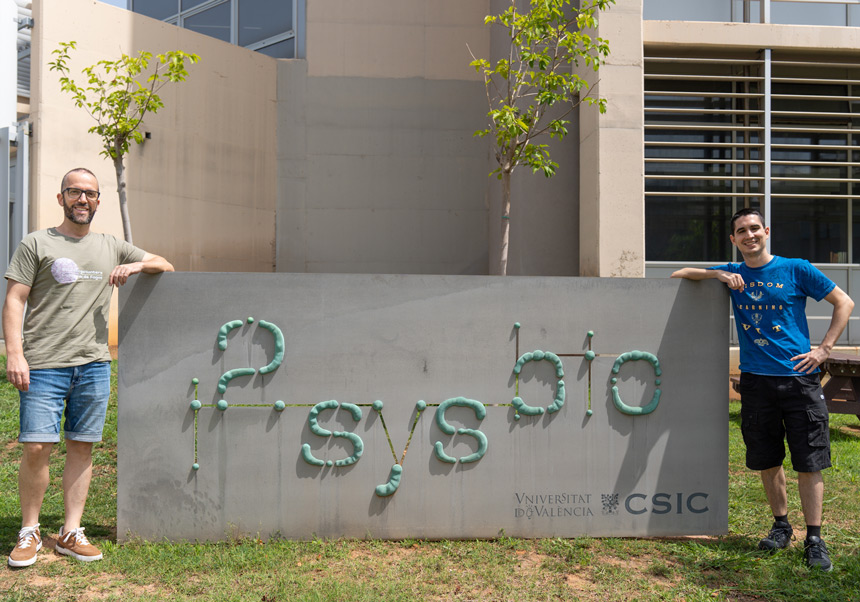Users
Social media
- More details here...
- Address
Parc Científic de la Universitat de València C/
Catedrático Agustín Escardino, 9
46980 Paterna (Valencia) Spain - Email:
iu.i2sysbio@uv.es - Phone:
(+34) 963544810
- Address
Links
Ernesto Segredo defends his thesis on the social evolution of viruses

Investigation & Education
Thesis
Ernesto Segredo defends his thesis on the social evolution of viruses

In This thesis, directed by Rafael Sanjuán, has studied viral infection from the perspective of social evolution and the collective behavior of viruses. Part of the research results have been published in the journals Scientific Reports, Nature Microbiology, PLoS Computational Biology, Virus Research and Biodesign Research. The thesis was defended on July 14, 2023.
For many years it has been assumed that viruses are transmitted as individual elements, in the form of particles (virions) that contain a single genome. More recently, it has been observed that many viruses are capable of being transmitted in groups of virions, allowing them to initiate infections with more than one individual, either in a new host, or in a new cell within a multicellular organism. Specifically, a multitude of structures have been described, promoted by viral genes, which are known as collective infection units, which allow the grouping, transport and joint arrival of multiple genomes or viral particles. Regardless of the specific characteristics of each of these structures, what is common to all of them is that they increase the number of viral genomes that initiate a new infection. Collective transmission opens the door for viruses to multiple interactions, which can be studied from the point of view of social evolution, as occurs with other microorganisms. In this thesis entitled “Social evolution of viruses”, three examples of viral interactions have been studied that, as demonstrated in the research, can be better understood from the perspective of social evolution.
Ernesto Segredo carried out his doctoral research in the Virus Experimental Evolution group under the supervision of Rafael Sanjuán, professor of genetics at the University of Valencia and researcher at the Institute of Integrative Systems Biology I2SysBio (UV-CSIC). During the completion of his thesis, Ernesto Segredo enjoyed a contract within the University Teacher Training program (FPU). The qualifying panel was made up of Santiago Elena (I2SysBio, CSIC-UV), Ester Lázaro (Astrobiology Center, CSIC-INTA) and José Manuel Cuevas (Universitat de València), who rated the thesis as outstanding.


